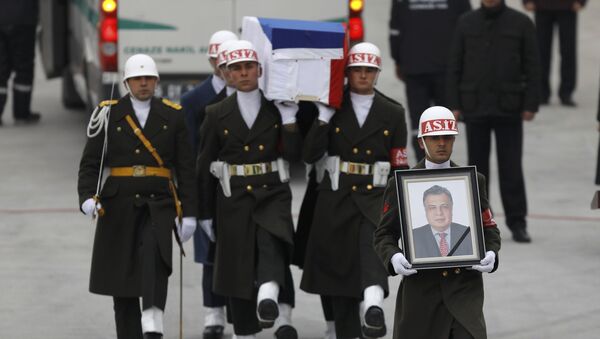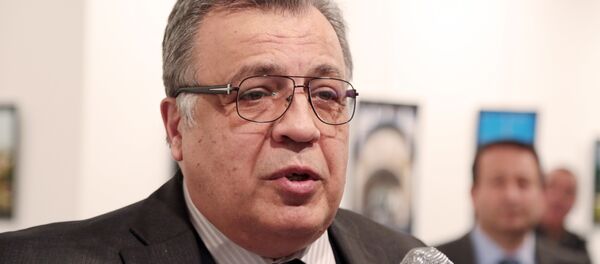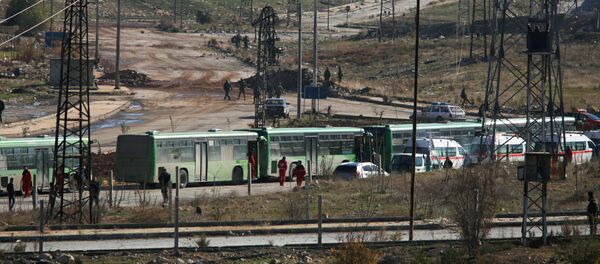Yelena Suponina, of the Russian Institute for Strategic Studies, argued that the Monday attack once again indicated that the liberation of Aleppo is not the end of the Syrian story.
"The terrorist threat will continue to increase, because the radicals are now under tremendous pressure," Suponina told RIA Novosti.
She was echoed by Semyon Bagdasarov, head of the Center for Middle Eastern and Central Asian Studies, who attributed the Monday attack to the success of the operation conducted by the Syrian government forces and a Russian Aerospace Forces group in the Syrian city of Aleppo.
"A significant number of the militants who fought in Aleppo were closely linked with Turkey, with many of them having their bases on its territory and being Turkish citizens. It is not surprising that the degree of anti-Russian sentiment has considerably increased among a certain part of the Turkish population," Bagdasarov said.
According to him, Russia underestimated the extent of a terrorist threat in Turkey, which grew significantly as the events developed in Syria and Moscow restored relations with Ankara.
Byaliy pointed to a whole array of conflicting political camps which he said remain at loggerheads over the nature of Turkish patriotism.
"Some profess neo-Ottomanism, others — pan-Turkism and imperial religious caliphatism. All these forces fighting in July led to a coup attempt, which was suppressed," he said.
“But these forces were never destroyed and they remain at all levels of life, politics, economics and the government. Each of them seeks to somehow correct the internal and foreign policy pursued by the Turkish President by resorting to any measures," Byaliy added.
Alexey Fenenko, of the Institute of International Security Problems, for his part, said that the Monday terrorist attack in Ankara once again indicated the drive of certain outside forces to undermine relations between Russia and Turkey.
"This is the fourth attempt to spoil the Russia-Turkey ties in the last two years. The first option is to destabilize internal situation in Turkey, while the second one is to drive a wedge between Russia and Turkey, and to prevent Russia from entering the Mediterranean Sea," Fenenko said.
According to Yelena Suponina, overcoming the differences and joining forces in the fight against terrorism is the only way to contain a terrorist threat. She said that Turkey and Russia have managed to fulfil this task and their rapprochement is under way despite a number of bilateral discrepancies.
Meanwhile, Fyodor Lukyanov, Chairman of the Presidium of the Council on Foreign and Defense Policy, has warned of a "principally new period" [of time] in Syria now that Aleppo was liberated.
However, Monday's tragedy in Ankara offers some hope that Erdogan, who is weighed down by guilt and responsibility for what has happened, can become a somewhat more accommodating partner," Lukyanov concluded.





